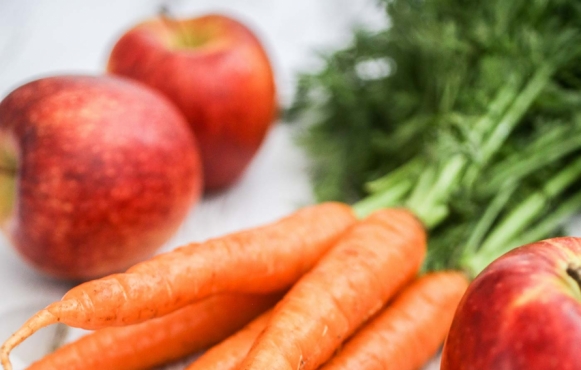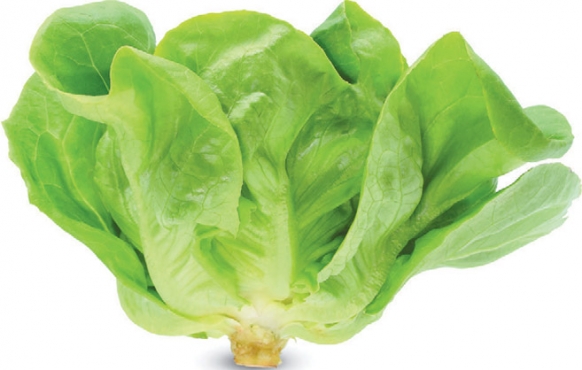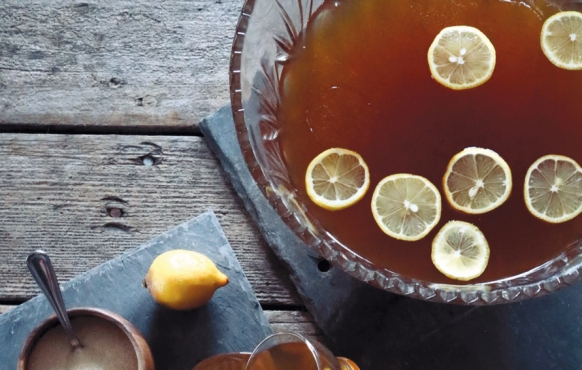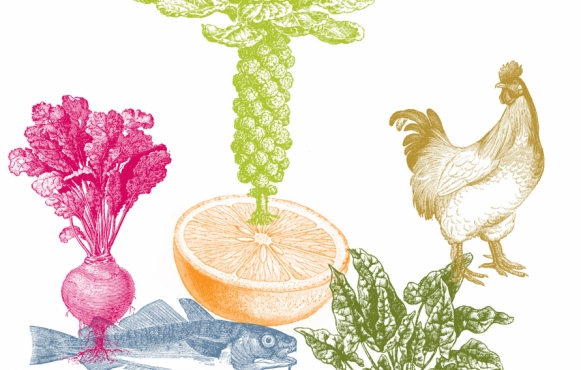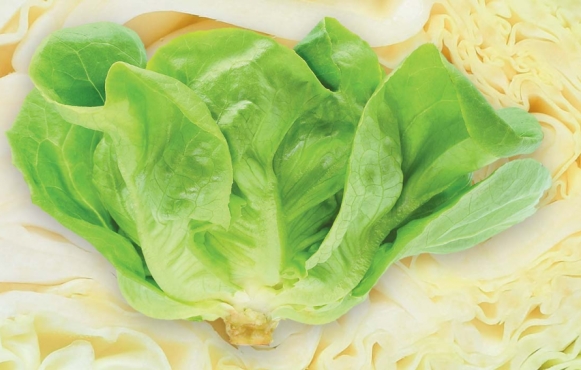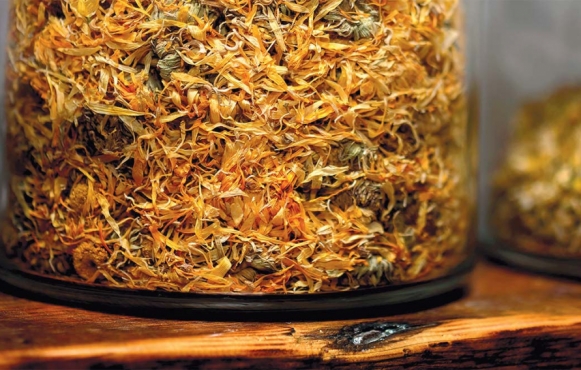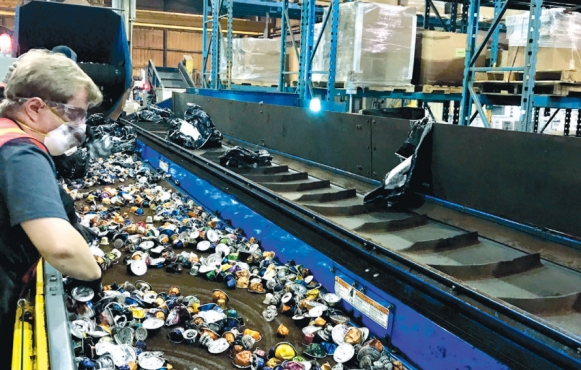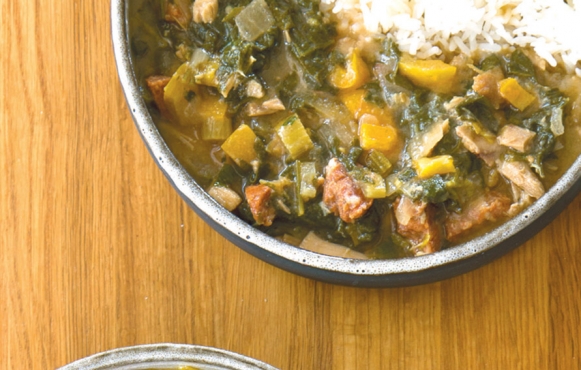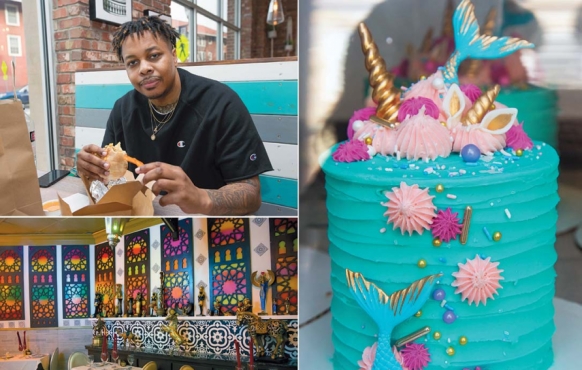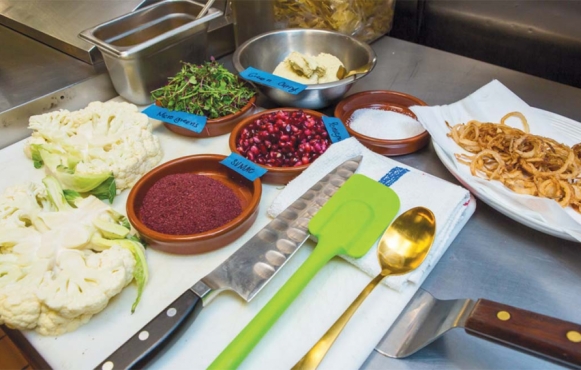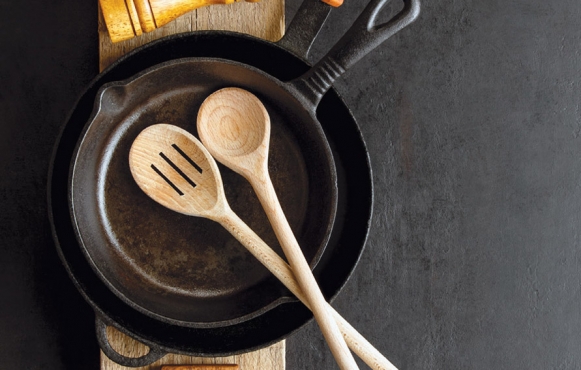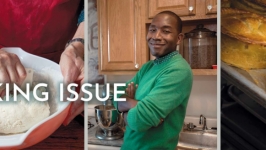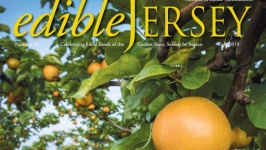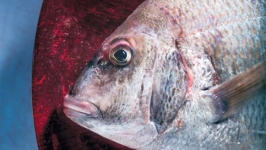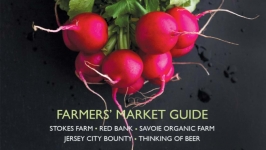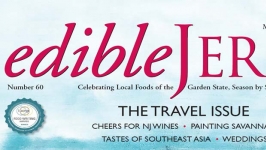Spring 2020 Issue
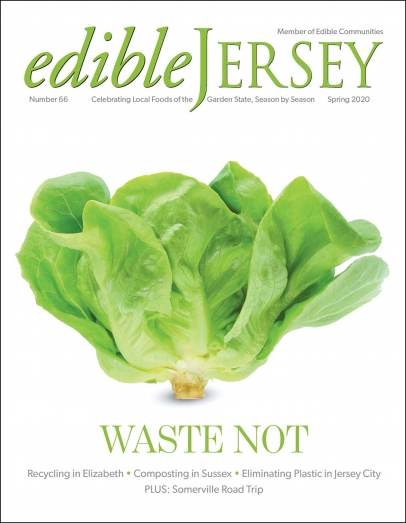
TACOS & SUSTAINABILITY
Chef Fred Martinez (named after his grandfather, who was named after Fred Astaire) is a Mexican food historian and chef. “Mexican food is not just tacos,” he says. “We eat them every day,” he admits, “but it’s not the only thing.”
Martinez is a young man with eyes that are capacious—brown, soulful, mischievous. He punctuates his presentation with his hands, talking Mexican food to a group of writers earlier this year in Cozumel. Martinez often travels by bus—not an air-conditioned bus, he says, and not a bus with a bathroom, but a bus with hard seats, a bus with a driver who wears cowboy boots and cut-offs, a bus with a route that welcomes passengers who travel with chicken and sheep, a bus he boards with a hand-written ticket bought at a store alongside a dusty road. Such is the transport to real Mexico cuisine, where families roast pigs in an underground fire pit, where his abuela stands miraculously for hours to burn chiles in a kitchen so full of acrid smoke it’s like you’ve been pepper-sprayed, he says. Not that he’s been pepper-sprayed. When Martinez did learn how to make recardo negro, he wore a mask. “My grandmother is like a US Marine.”
Martinez, as storyteller, takes us on a journey. He hasn’t said that the classic food of Mexico is smoky, earthy, complex, mysterious, fierce, but that is exactly how we imagine it. Over the next several days, we find ourselves exploring the Mercado Municipal, where the locals shop. We buy gorditas for 25 pesos and pollo negro for 40 pesos, and we finish our lunches with a sweet/sour mandarin from the produce stand, which we peel and quarter and share with each other as we walk past the murals that splash across the concrete villas and past the Plumeria trees that have dropped their flowers like jewelry in the night.
 On our last day in Cozumel, three of us wander into the business district, peering into the auto shops and the gas stations and the lavanderias in search of something we can’t yet know, a memory apart from others who visit this seaside resort. We stop at an outdoor tacqueria that sells hand-pressed tortillas, where the chorizo is spit-fired and the homemade sauces are in plastic bowls with plastic spoons like we are family at a picnic. The woman who takes our money is crocheting a red dress for her daughter, who sits quietly with her iPhone on an aluminum stool. We each order a selection of tacos and a bottle of Coca-Cola. Our dinner is art-like, sophisticated and fresh. We agree, with reverence, that it is the best dinner of our week. We could eat like this every day.
On our last day in Cozumel, three of us wander into the business district, peering into the auto shops and the gas stations and the lavanderias in search of something we can’t yet know, a memory apart from others who visit this seaside resort. We stop at an outdoor tacqueria that sells hand-pressed tortillas, where the chorizo is spit-fired and the homemade sauces are in plastic bowls with plastic spoons like we are family at a picnic. The woman who takes our money is crocheting a red dress for her daughter, who sits quietly with her iPhone on an aluminum stool. We each order a selection of tacos and a bottle of Coca-Cola. Our dinner is art-like, sophisticated and fresh. We agree, with reverence, that it is the best dinner of our week. We could eat like this every day.
In high season, so many tourists descend on Cozumel that its reef system, the second longest in the world, is threatened. Tourism officials and historians worry about how they can balance the economic benefits of tourism and remain environmentally responsible.
In this issue of Edible Jersey, we explore environmental responsibility. The threat is global. In the nation’s most densely populated state, the threat is also intensely local. Here in Jersey, a new facility in Elizabeth is creating energy from food waste, processing 100 tons per day (See page 24). In Sussex County, coffee pods become compost (see page 34). In Jersey City, a low-waste store has opened (see page 28). We also offer practical tips for the home cook on how to reduce food waste (see page 32).
“What you sell, what you buy, what you eat”—chef Martinez pauses for emphasis— “It makes you who you are.”
Cheers,
Teresa Politano
Editor
SPRING 2020 FEATURES
Communities Near You
What’s happening near you
Bee-ginner’s Beekeeping: The Basics of Apiculture
Rutgers UniversityNew Brunswick
Old York Cellars 5-Course Spanish Indian Fusion Wine Pairing Dinner
Old York CellarsRingoes


